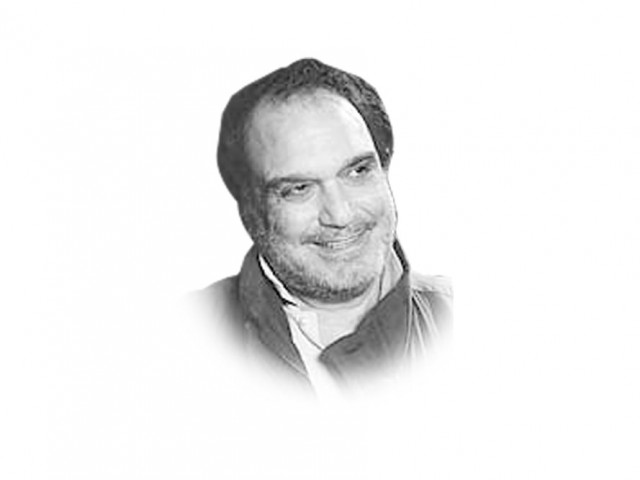Husain Haqqani versus Pak Army
Haqqani didn’t think well of the army. Let us see what his book, Pakistan: Between Mosque and Military, contains.

The book says, Pakistani nationalism is shaped in an anti-India mould to favour the military during the early years and during interregnums when the political parties ruled Pakistan under the tutelage of the military. By the time the politicians realised that nationalism was actually helping the military to remain on top, they had also become alive to the already formed public mind that would not accept any alteration in nationalism without a trauma.
He also traces another doctrine — that of ‘strategic depth’, which came to grief with 9/11 — to early formulations of strategy. Because Pakistan did not have geographical depth when militarily confronted by a thousand-mile deep India, the army posited ‘fusion of the defence of Afghanistan and Pakistan’. Haqqani traces it, not to the timeline of the Pakistan Army’s decision to support the Taliban, but to Aslam Siddiqi’s 1960 book, Pakistan Seeks Security. Siddiqi leans on Fraser-Tytler’s suggestion that the two states be fused into one. Siddiqi’s typically military addendum to the theory was that, since, it can’t be done by force (‘fusion will lead to confusion’), Islamic ideology may be put to use.
The India-centrism of this thinking is backed by an almost universal resistance in Pakistan to any changes in the anti-India curriculum. In the post-2000 period, most of the attempts made by the Musharraf government to detoxify the textbooks failed. This move was aimed at eliminating two elements in the books: the anti-India (strategic depth) reference and its corollary, the reference to Islam (internal fusion of identities in order to face India effectively).
Under Musharraf, the ISI handed the jihadis a ‘severance pay’ to ask them to quit jihad because its heat was too much to bear for Islamabad. When it arrested their leaders, it usually let them go after some time. There is reference to Fazlur Rehman Khalil of Harkatul Mujahideen who received special treatment by the ISI during times when other jihadi leaders were on the run. Khalil was the logistics man of Bin Laden and had co-signed the 1998 fatwa of death against the Americans with Osama bin Laden. Khalil was in the camp when the Americans unsuccessfully targeted Osama bin Laden in Afghanistan after the al Qaeda bombing of the USS Cole.
What came first, the army-sponsored India policy or army-sponsored Islamic extremism? Haqqani ends the book proving that it was the India-centrism of Pakistan that finally brought it to Islamic extremism. The myth of India not accepting Pakistan and India attacking Pakistan was concocted and survives the acquisition of nuclear deterrence by Pakistan.
Is it a kind of an ‘anticipatory’ argument to conceal the Pakistan Army’s intent of attacking India? And Pakistan ideology? It is the army’s answer to its fear that some communities within Pakistan might not show the same level of commitment to the India policy decided by the army. Haqqani says normalisation of relations with India is the only available solvent to what the military has done to Pakistan.
Haqqani desired survival of Pakistan through change of policy in the light of the theory of gradual adjustment to circumstances. The Pakistan Army desires longevity through consensual stasis based on refusal to adjust. The casualty will be democracy invented to avoid revolution. Only al Qaeda qualifies to lead the revolution in Pakistan.
Published in The Express Tribune, November 30th, 2011.














COMMENTS
Comments are moderated and generally will be posted if they are on-topic and not abusive.
For more information, please see our Comments FAQ